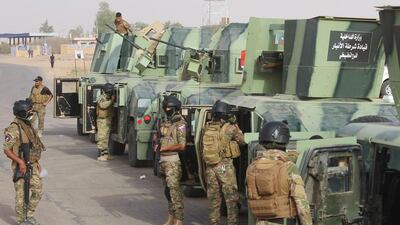Listening to the speakers at the opening day of a conference in the capital on modern warfare is a reminder that we live in dangerous times, in an uncertain region. The conference at the Emirates Center for Strategic Studies and Research in Abu Dhabi aimed to explore “fourth-generation warfare”, the idea of culture as the target of warfare, rather than the conquest of land or resources.
Fourth-generation warfare has become particularly important in the past 15 years, as the threat of Al Qaeda fighting a borderless, information and ideological war became apparent. Particularly in the West, the concern that Al Qaeda’s ideas would filter through via the internet to western populations led to a belief that a counter “war” of ideas had to be fought.
That war has a special resonance in this region. Although most of the wars of the modern era in the region have been conventional wars – Israel and the Palestinians, America and Iraq, the Houthis in Yemen and the rebels in Syria – often the greater threat has come from the wars of ideas. As Saif Al Aryani, secretary general of the Supreme Council for National Security in the UAE, said, it is “difficult for many governments to follow such electronic warfare”.
Today’s most difficult wars are a combination of types of wars. Both Al Qaeda and ISIL use social media to attract followers and disseminate their ideologies – but it is only ISIL that has territory who can train recruits and tax people to raise money.
The rising threat of Iran also falls into this category. On one level, there is no war between Iran and the Middle East. But the proxy wars in Lebanon and Yemen, the support for the Assad regime and the influence, also through ideology, that Iran wields in Iraq is part of a complex desire to dominate the region without open conflict.
The response, therefore, needs to be similarly nuanced. The war against ISIL and the Houthis rebels is relatively straightforward, as both control territory that can be targeted. But the war of ideas is more complex. It requires a stronger reassertion of national ideas and ideologies, careful balance in the online space between protecting free speech and curbing incitement, and better dissemination of centrist religious ideas. All of this, layered on top of a foundation of economic prosperity, provides the best defence. It isn’t easy, of course, but the nebulous nature of modern warfare requires new responses.

